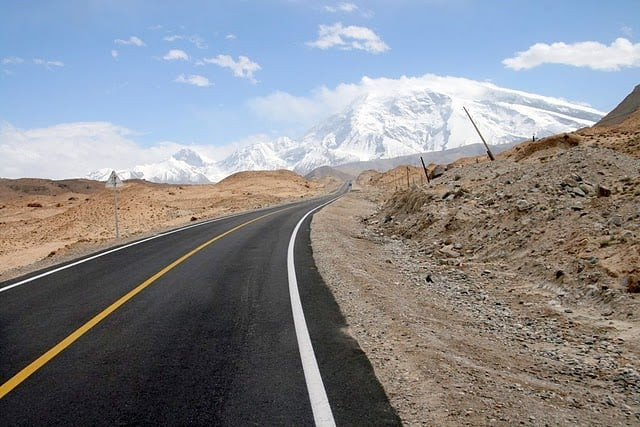Gilgit-Baltistan unrest: Amidst tense calm, public transport banned on key highway
Four suspects were arrested after two people killed earlier this week.

A day after two people were killed in a spate of sectarian violence in Gilgit city on Tuesday, police arrested four suspects and banned public transport on Karakoram Highway for security reasons.
“Action against the troublemakers is on as we have arrested four suspects so far,” Deputy Inspector General Police Ali Sher told The Express Tribune.
Traffic remained thin on the roads, though schools and offices were open on Wednesday. The ban imposed on motorcycles last week remained in force. The administration also banned the entry of pickups in the city to ensure peace. “A high-level meeting has decided that a ban should be imposed on pickups,” said an official.
As part of security measures, the government banned public transport between Gilgit and Rawalpindi via Karakoram Highway. “We have been asked not to run public transport buses on the highway for security reasons,” said Ehsan Shah, a spokesperson for the government-sponsored Natco bus service.
Meanwhile, Chief Minister Mehdi Shah said extremists would not be allowed to “hijack” the city. “Those challenging the writ of the government will be taken to task,” read a statement issued by the Chief Minister Secretariat.
Shah blamed the violence on a lack of development in the region and said short- and long-term strategies would be prepared to counter sectarianism in the region. “I appeal to people to identify those involved in sectarianism and terrorism,” he said.

Tuesday’s deaths occurred when two passenger pickups were attacked by armed men in separate incidents. Three were also wounded in the attacks. Meanwhile, another man who was injured in a university clash last week also died on Tuesday, after succumbing to his injuries. “Zameer Abbas died of his wounds, while the two others were killed in separate incidents,” SSP Muhammad Ali Zia told The Express Tribune.
Last week, two rival groups of university students clashed, leaving two men dead and seven injured. The incident led to the imposition of Section 144, which bars the assembly of five or more people in one place.
Chairman of the G-B Public Accounts Committee Syed Raziuddin Rizvi linked Tuesday’s violence to the students clash, saying the university’s Vice Chancellor (VC) Dr Najma Najam created a rift between students from Shia and Sunni communities by denying permission for a religious event on the campus.
“The G-B Assembly speaker and deputy speaker’s unjustifiable support to the VC has reignited sectarian violence in the town,” he told The Express Tribune by phone from Islamabad.
Another lawmaker, Didar Ali, the former president of Anjuman-e-Imamia, said that the clash between two student groups was “engineered” to “facilitate” the escape of high-profile prisoners from a local jail.
Published in The Express Tribune, December 20th, 2012.



















COMMENTS
Comments are moderated and generally will be posted if they are on-topic and not abusive.
For more information, please see our Comments FAQ